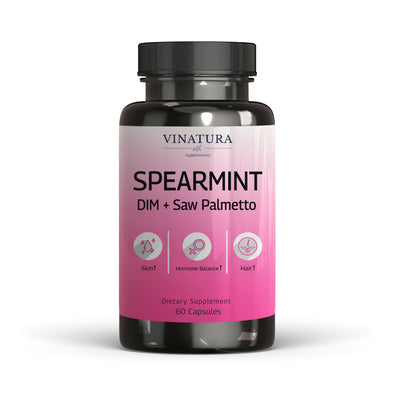
Probiotic Acidophilus with Pectin Benefits You May Not Know
Probiotic Acidophilus and Pectin are two ingredients often combined in supplements to optimize benefits for gut health.
The combined Probiotic Acidophilus, or Lactobacillus acidophilus, is a beneficial bacteria naturally present in the human digestive system with Pectin, a polysaccharide found abundantly in fruits and widely used in the food and pharmaceutical industries.
Before exploring further, please read the disclaimer located at the end of this webpage.
Key Takeaways
- Probiotics such as Lactobacillus Acidophiluss help maintain a healthy gut environment, facilitating Pectin to exert its beneficial effects more effectively.
- Studies suggest that combining Acidophilus and Pectin may help alleviate common digestive issues such as diarrhea, constipation, and discomfort following antibiotic treatment.
- While severe side effects from using Lactobacillus Acidophilus and Pectin are not indicated by research, some individuals may experience bloating or temporary diarrhea.
Understanding Lactobacillus Acidophilus

Probiotic Acidophilus, scientifically known as Lactobacillus acidophilus, is a beneficial bacterial strain in the human body, particularly in the digestive system.
This remarkable microorganism falls under the probiotics category, denoting live bacteria that offer numerous health benefits when consumed in adequate amounts.
Acidophilus produces lactic acid, helping establish an acidic environment in the gut.
It is found in many fermented foods like yogurt, sauerkraut, and kimchi.
Acidophilus aids food digestion, enhances the immune system, and prevents gut infections.
Understanding Pectin

Pectin is a crucial polysaccharide with applications in food, pharmaceuticals, and several other industries. Its significance in food lies in its ability to form gels with Ca2+ ions or solutes at low pH.
Pectin is commonly used as a thickening agent in food and found in fruits like apples, oranges, strawberries, and barley. Also, it holds multiple health benefits, including supporting digestion and lowering cholesterol [1].
In the pharmaceutical industry, Pectin is employed to reduce blood cholesterol levels and address digestive disorders. Other applications of Pectin include its use in edible films, paper substitutes, foams, plasticizers, and others.
Why Do Some Supplements Contain Lactobacillus Acidophilus and Pectin?
Combining probiotic acidophilus and pectin in supplements enhances their digestive health benefits. Probiotics help maintain a healthy gut environment, facilitating Pectin to exert its beneficial effects more effectively.
Lactobacillus acidophilus, a probiotic, demonstrated improved survival through simulated gastrointestinal conditions when pre-grown with Pectin.
Moreover, Pectin enhances the resistance of L. acidophilus to digestive stress. It stimulates the production of butyrate, a type of short-chain fatty acid that is beneficial to the digestive tract [2].
Growth in the presence of Pectin or inulin results in significant changes in the proteomic profile of L. acidophilus, affecting its stress resistance and butyrate production.
These findings suggest that Pectin supports the growth of L. acidophilus and contributes to its functional benefits, making the combination valuable in dietary supplements.
What are the Probiotic Acidophilus with Pectin Benefits?

Beneficial for Gut Health
When considering gut health, it's important to evaluate the benefits of each ingredient.
Probiotic Support: Lactobacillus acidophilus, a beneficial bacterium, is vital in supporting digestion and nutrient absorption in the gut. It helps break down food, produce digestive enzymes, and boost the immune system.
Pectin, a soluble fiber, acts as a prebiotic, preventing constipation and providing food for beneficial bacteria like Acidophilus.
Acidophilus directly adds good bacteria (probiotics) to your gut. At the same time, Pectin acts as a prebiotic, nourishing the existing beneficial microbes like Acidophilus. This strengthens the good bacteria population, promoting a healthy gut microbiome [2].
Improve Diarrhea or Constipation
For Diarrhea: Probiotics like Lactobacillus Acidophilus help restore the balance of good bacteria in the gut; this balance can be disrupted by infections or viruses causing diarrhea. A healthy gut microbiome with enough good bacteria like Acidophilus can help fight off harmful bacteria contributing to diarrhea.
For Constipation: Pectin, a soluble fiber, supports bowel movements by increasing stool bulk and promoting regularity. It acts as a prebiotic, providing a food source for probiotics to thrive in the gut.
According to studies, combining Acidophilus and Pectin may help alleviate common digestive issues like diarrhea, constipation, and uncomfortable symptoms following antibiotic management [3].
Side Effects May Happen When Using Lactobacillus Acidophilus and Pectin
Currently, no research indicates severe side effects from using Lactobacillus Acidophilus and Pectin. However, some individuals may experience common side effects such as:
- Bloating: Lactobacillus Acidophilus may cause bloating and gas in some people, especially when first using it.
- Diarrhea: High doses of Lactobacillus Acidophilus may cause temporary diarrhea.
How to Supplement Lactobacillus and Pectin to Your Body

There are two main ways to supplement Lactobacillus and Pectin into your body:
Through Food
Both Lactobacillus Acidophilus and Pectin have in various food you can easily find:
Lactobacillus acidophilus is commonly found in yogurt, cheese, kefir, and fermented soy products like miso and tempeh.
For pectin, consume fruits like apples and citrus fruits and vegetables like peas, carrots, and potatoes, as they are high in pectin [1].
Using Supplements
Many supplements combine Lactobacillus and Pectin in specific dosages. Be sure to choose products from reputable brands with clear origins.
Dosage: The specific dosage for Acidophilus and Pectin has not been determined; however, most probiotics are safe for humans. A typical daily dose of
Lactobacillus ranges from 1 to 10 billion colony-forming units (CFU) per day, divided into 3 to 4 doses per day [4].
Conclusion
Supplementing with Probiotic Acidophilus and Pectin through food or supplements can provide numerous benefits for gut health, including improving digestion, supporting diarrhea and constipation improvement, and promoting a healthy gut microbiome.
You can obtain these ingredients through dietary sources like yogurt, fruits, and vegetables or consider reputable probiotic supplements with Lactobacillus and Pectin.
References
- [1] Thakur, Beli R., et al. “Chemistry and Uses of Pectin — a Review.” Critical Reviews in Food Science and Nutrition, vol. 37, no. 1, Feb. 1997, pp. 47–73, https://doi.org/10.1080/10408399709527767.
- [2] Nazzaro, Filomena, et al. “The Prebiotic Source Influences the Growth, Biochemical Features and Survival under Simulated Gastrointestinal Conditions of the Probiotic Lactobacillus Acidophilus.” Anaerobe, vol. 18, no. 3, June 2012, pp. 280–285, https://doi.org/10.1016/j.anaerobe.2012.03.002. Accessed 3 Feb. 2020.
- [3] De, Faculdade, et al. Universidade Estadual Paulista “Júlio de Mesquita Filho” Modulation of Gut Microbiota from Healthy- Weight and Obese Individuals by Pectin, By- Products of Tropical Fruits and Probiotic Strains. 19 Feb. 2019.
- [4] Eskesen, Dorte, et al. “Effect of the Probiotic Strain Bifidobacterium Animalis Subsp. Lactis, BB-12®, on Defecation Frequency in Healthy Subjects with Low Defecation Frequency and Abdominal Discomfort: A Randomised, Double-Blind, Placebo-Controlled, Parallel-Group Trial.” British Journal of Nutrition, vol. 114, no. 10, 18 Sept. 2015, pp. 1638–1646, https://doi.org/10.1017/s0007114515003347.
Author

Product Disclaimer
Including an ingredient or study does not evaluate, endorse, or recommend any Vinatura product or any third-party product. Some ingredients discussed may not be used in any Vinatura product.
The content of the articles has not been evaluated by the Food and Drug Administration (FDA) and is not intended to promote or endorse any specific product. Any products sold on this website are not intended to diagnose, treat, cure, or prevent any disease.
Opinions and Endorsements
Any claims, statements, or opinions expressed in the articles are those of the author(s) and do not necessarily reflect the views or opinions of the manufacturers of the dietary supplement products. The products sold on this website are separate from the content of the articles and are not directly endorsed or associated with the information presented here.
Liability Disclaimer
The author(s) of the articles, website, and manufacturers of the dietary supplement products do not assume any liability for any potential consequences arising from the use of the information provided in the articles. Ingredient effects, dosages, and safety vary by individual, formulation, and context; some ingredients interact with medications or may be unsuitable during pregnancy or lactation. It is recommended that individuals consult with a qualified healthcare professional before making any dietary or lifestyle changes, including the use of dietary supplements.
Product Usage
Please refer to the product labels and packaging for specific usage instructions and guidelines for the dietary supplement products sold on this website.
Customer Support
For any concerns or questions regarding the dietary supplement products, please contact our customer support team, who will be more than happy to assist you.





Leave a Comment
Be the first to comment.
What do you think?